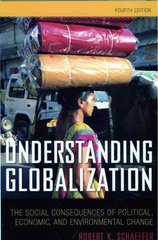Question
Environmental regulations have a significant effect on business decisions and consumer behavior. Charles Schultze, former chairperson of the President's Council of Economic Advisers, describes the
Environmental regulations have a significant effect on business decisions and consumer behavior. Charles Schultze, former chairperson of the President's Council of Economic Advisers, describes the myriad problems associated with the regulations requiring electric utilities to convert from oil to coal. Petroleum imports can be conserved by switching [utilities] from oil fired to coal-fired generation. But barring other measures, burning high sulfur Eastern coal substantially increases pollution. Sulfur can be "scrubbed" from coal smoke in the stack, but at a heavy cost, with devices that turn out huge volumes of sulfur wastes that must be disposed of and about whose reliability there is some question. Intermittent control techniques (installing high smoke stacks and turning off burners when meteorological conditions are adverse) can, at a lower cost, reduce local concentrations of sulfur oxides in the air, but cannot cope with the growing problem of sulphates and widespread acid rainfall. Use of low-sulfur Western coal would avoid many of these problems, but this coal is obtained by strip mining. Strip-mine reclamation is possible but substantially hindered in large areas of the West by lack of rainfall. Moreover, in some coal-rich areas the coal beds form the underlying aquifer, and their removal could wreck adjacent farming or ranching economies. Large coal-burning plants might be located in remote areas far from highly populated urban centers in order to minimize the human effects of pollution. But such areas are among the few left that are unspoiled by pollution, and both environmentalists and the residents (relatively few in number compared to those in metropolitan localities but large among the voting populations in the particular states) strongly object to this policy. Fears, realistic or imaginary, about safety and accumulation of radioactive waste have increasingly hampered the nuclear option.
Schultze's points apply directly to today's energy and environmental tradeoffs. Actually, he penned this discussion in 1977! Important questions persist. How, when, and where should the government intervene to achieve and balance its energy and environmental objectives? How would one go about quantifying the benefits and costs of a particular program of intervention?
Answer all the questions according to the case.
(a) Define the problem. (1 mark) Answer: Ignorance of environmental regulation by firm like environmental pollution.
(b) What is the objective of the project? (1 mark) Answer: To protect environmental regulation and reduced environment pollution.
I need your assist in the rest of the question and check the a and b question where it is right :
(c) What are the alternatives to consider to protect the environment? (1mark)
(d) How will you predict the consequences of environmental pollution? (2 marks)
(e) How will you make a choice from the alternatives in question c? (2 marks)
(f) How will you carry out a sensitivity analysis in this case? (3marks)
For Reference:
https://docs.google.com/document/d/1VkmPRt0MpAts0CPDdqUR6CmEP4n36N2Nlirdnh_u6JQ/edit
https://drive.google.com/file/d/1NgOK-e1mGAEGk5dYFRnJ_Y-vZLNhi4wy/view?usp=sharing
http://www.studydunes.com/classroom/lessons/lesson-latest-topic-home-detail/5
Step by Step Solution
There are 3 Steps involved in it
Step: 1

Get Instant Access to Expert-Tailored Solutions
See step-by-step solutions with expert insights and AI powered tools for academic success
Step: 2

Step: 3

Ace Your Homework with AI
Get the answers you need in no time with our AI-driven, step-by-step assistance
Get Started


